Careers in Consumer Product Marketing
If you’re looking for a career where you can use the creative and business sides of your brain, consumer product marketing jobs might be for you! From product development and brand management to designing packaging and understanding your consumers, this career path provides a great mix of work. Today’s career video guest loves his career – in 15 years of marketing toys he’s only had 10 days where he didn’t look forward to work! He tells us about different types of marketing careers and shares how to get a career in marketing.
SNEAK PEEK (Full Episode below)
|
RELATED CAREERS |
Today’s Guest
 VP of Marketing & Licensing : Michael Edelstein
VP of Marketing & Licensing : Michael Edelstein
Grad School: USC Film School
Grad Degree : Master’s of Fine Arts
College Major: English & Film/Video
College: University of Michigan in Ann Arbor, MI
High School: Highland Park High School in Highland Park, IL
First Job Ever: Telemarketing for Allstate Insurance
Worst Job Ever: Stockboy at a local shoe store
Types of Marketing Careers
Michael explains the difference between consumer marketing (getting people to buy your product via things like advertising) and product marketing (designing your product and packaging to appeal to the consumer). Regardless of the consumer product you’re selling, these types of marketing careers don’t change all that much. Michael says the process is similar whether you’re marketing toys, cereal, or shampoo. For example, I worked in marketing in the music business (at A&M Records), where we followed the same processes Michael describes.
How To Get A Career in Marketing
Michael strongly advises that if you want to get a career in marketing, you should earn a college degree. You may even want an MBA, which can help you to move up faster (although he says it’s probably 50/50 as to whether you really need it). In the career video, Michael suggests certain classes you should take in school for these types of marketing careers. He also says to make sure you can handle working in groups – there’s a lot of collaboration in consumer product marketing – and you’ll be interacting with a variety of personality types from creatives (designers) to business types (product managers). Finally, Michael urges that you have or develop a passion for your product and be able to show it when interviewing for this marketing career path.
FULL EPISODE (#44)
For our Audio Podcast: Careers Out There on iTunes
TRANSCRIPT OF TODAY’S INTERVIEW
Marketing Expert Michael Edelstein: Thanks Marc, this is a dream of mine to be here so I’m excited.
Host Marc Luber: Excellent, glad you’re here! So Michael I want you to tell everybody what do you as a VP of marketing and licensing. I’m excited to hear about that, I’m sure everyone else is too. But first I want you to explain to us what you and I were talking about over the phone about the differences between consumer marketing and product marketing.
Michael Edelstein: Okay, well consumer marketing is probably what most people would think of as marketing: it’s doing commercials, it’s putting together ad programs. Nowadays, it’s digital marketing, it’s reaching the customers. So who is your consumer, and in our case we do toys so we’re talking to moms or little kids, maybe 2 to 5 year olds and what’s that message and how are you going out and reaching them and really marketing your products to them? Product marketing is kind of the same thing but it’s more – I’m developing a product, what is the message I want to tell on the product, what are the features. One of the single most important things you do in terms of marketing when you are into consumer products is your packaging. How you are designing your packaging and mainly in the toy businesses how are you selling features like what’s the most important feature in an item. How do you decide what that most important feature is until you’re developing the product based on what we consider to be the insights of what is that consumer looking for and really I would say that the product marketing really decides how are you designing that product to appeal to your end consumer. Whereas, consumer marketing is more traditional: how am I going to get them then to buy it after that. If that makes sense?
Luber: Yeah, totally makes sense and then as a VP of Marketing and licensing what aspects of those things that you just discussed are you overseeing?
Michael Edelstein: Well, most of the time I’m probably involved in almost any of them. We really market and manage in my group the brands or the different product lines that we have and so we spend a lot of time really on the product so we really start and we’re working with designers and we’re working with graphics people and we’re working with Project Managers to help them essentially take an idea for a product or a product line and bring it from beginning to end so that it could be put on the shelf. So we spend a lot of time really managing that process, understanding that process, coming up with the insights. So what is a mom interested in? What are the trends on the market? What’s your competition doing? What is competition doing in other categories? And then how can you bring that into the product to try and be fresh and exciting and new and then how do you build out that whole line? Because it’s again in the toy business it’s not really just one item it’s a series of items that you have to put together and then make a line and come up with what your objectives are and what’s the price that you want it to be. So I’m kind of involved in making sure everything is happening on every basis, everyday in that thing. So it’s quite encompassing but it also keeps it fresh and exciting and fun.
Luber: What would you say then if you can give an example? What would you say a good example of something you’ve done I think hearing an example will help the audience. Like what type of toy would you be working on when you’re going out and doing the analysis and seeing what other people are selling, give us an example.
Michael Edelstein: Sure, one of the things that I’ve spent a lot of time working on over my career is Thomas the Tank Engine who most people probably might remember, your audience probably remembers from when they were kids I would think and we’ve been making those and wooden trains or die cast trains over many years. So one of the things when you have a brand is all these Thomas’s and how do you keep them new and fresh and exciting each and every year ‘cause we’ve been making as a company for over 20 years. So you have to go and understand what are the products – are there new characters, are there new stories that you want to tell, is there new type of destination or a place that he’s going to visit and then how do you take that and translate into any type of product or product line that you are putting together. So every year we’re going to introduce a new line of products – some in spring, some in the fall, probably will be 20 to 30 products so we come up with our list of ideas that are related to a show like Thomas or Bob the Builder or whatever and we say okay we are going to do Scoop and Muck and so on and maybe this year instead of doing them just basic vehicles we’re going to make them all remote control or we are going to make them wind up so any type of feature or and that’s really interesting what does the mom want to pay. How much are they interested in something like that – how are they going to make it new and fresh and exciting so we’ll start in that respect and you’ll slowly kind of then develop those products and also figure out what’s the packaging. How are we going to package it differently. So the goal for existing lines is how do you keep it new and exciting and fresh each and every year and to keep moms coming back and also to keep retailers excited about what you’re doing as well cause they really are customers at the end of the day.
Luber: Right, for sure so if they don’t carry it then no one can buy it.
Michael Edelstein: Right.
Luber: Since most of the people watching aren’t going to walk in as a VP of Marketing and Licensing, what are some of the roles that would be below you or some of the more entry level jobs and maybe a step above that that people can be getting. What would they actually be doing?
Michael Edelstein: That’s actually how I started. I started as an Associate Brand Manager at my first company and really the difference is it was probably a more focused part of the job but I was a Brand Manager or Marketing Manager that’s sometimes referred to as. And that’s somewhat of an entry level job, you’d probably come in at the Associate level and there you probably are assigned to a single brand, whereas now I look over 10 or 12 different brands. So that’s really one of the things that changes over time, it’s just more responsibility or a wider set of responsibilities, but the core thing is the same and really when I was an Associate Brand Manager the same things that appeal to me now are what appealed to me then, which is really the creative process of coming up with ideas and how do you bring them and tell that story to moms and kids. One thing you’re doing when you’re kind of in the marketing role is you are leading a lot of other departments. You may not have all those people reporting to you but you’re interfacing with the Project Manager or Graphics Designer or Product Designer or Sales Person. So you’re trying to keep everyone on the same page and with the same goal to try and get what you want sold or done or put together. And that’s a fun thing as you get to kind of control a lot of things as you’re the center of the wheel so to speak, and then you also get this whole process of bringing the products from beginning to end, that you kind of own, and you’re going to own the business type then and so on and so forth. That’s one way – Product Manager is another way – product manager is more going to be the person who is following the timeline to bring the product to market, so they’re responsible for the dates or they’re responsible for making sure the product’s at the right cost and they’re responsible for working with the factory to get the cost back and forth so that’s another way is through the Product Manager side and you can enter that as an entry level. You can be a junior designer and those are the people who draw and some engineer or kind of come up with the concepts of the product – that’s another way to get in.
Luber: So people can come from a lot of different backgrounds. You can study a lot of different things before you come in.
Michael Edelstein: Yeah. So those are kind of all of the different areas on a team that I might run that someone might be interested in getting in – and the exciting thing is collaboration – everyone’s working together to get to that goal. It’s not something for someone who wants to be on their own, it’s for someone who likes to be part of a team and work as a team and get joy out of that. I think it’s a really important part of it.
Luber: And this wouldn’t just apply to toy companies – there could be cereal companies, shampoo companies. Right?
Michael Edelstein: Oh yeah. I think it’s very similar. I mean every company or every type of company – bigger companies or smaller companies, they all work obviously differently but that idea is all going to be pretty much the same principal, no matter what type of business you are in.
Luber: Yeah, yeah now you know I like what you said about the center of the wheel. Because when I first moved to Los Angeles and I worked at A&M Records – I was in the marketing department and everything kind of revolved around the marketing department, and it was our role to interact with every single department at the company and keep everyone on their timeline to make sure that everything was moving smoothly getting the project out there and then once it was out there that it was moving forward until it got into the hands of our consumers.
Michael Edelstein: Yeah. That’s what it’s all about. That’s the fun part about it so if you like that kind of stuff you are going to love it. You’ve got to be entrepreneurial, which is a big thing! You got to really want to be a go-getter and drive yourself through but it’s a lot of fun when you can do that kind of stuff.
Luber: Is there any other detail you want to share about the actual development of a product?
Michael Edelstein: The actual development of a product can be very tedious – it takes …. a product can take 2 years to develop from the time…..A lot of my background was in the movie business before I got into the toy business which everyone’s always like, “well how does that fit together” or whatever. And it’s actually very similar, but the idea of developing a product and developing a movie all kind of fit the same kind of beats and rhythm of their own. They take a long time to do, you have your pre-production, you come up with your concept which is the same as kind of writing a script or coming up with an idea, you go into production or pre-production which is like coming up with the prototype of a model or how it functions and selling it. And then you have the whole production time which happens in the factory or on a shoot and then when you’re done you put it out there for people to see and view and that’s kind of the fun. I guess the ego side of it is – it’s always fun to walk into a store and see someone shopping with your product or you see them walking around in the airport and kids are carrying around your products and so that’s kind of the fun thing that makes this a little bit more different than some of the other things out there.
Luber: And is the licensing part of your job…. is that because are you licensing characters from movies and turning those into toys?
Michael Edelstein: Yeah. Most of what I’ve done is through TV shows, but yeah, in this business and really consumer products and the entertainment business fit together – if I could go on, because almost anything: cups, shampoo, almost anything has a license on it. Obviously in toys that’s kind of the lead side of it where you see there are a lot of characters but yet I go and I get to look at different properties and we then will go pay a fee or eight percent of our sales to that company and then we get to use their characters in our product as well.
Luber: So when you say you go and look at different properties – are you going and watching different TV shows, going to TV conventions to see what new shows are coming out? How does that work?
Michael Edelstein: Well we’re meeting with the studios a lot, there’s a trade show called the Licensing Show once a year where all the studios and development companies come and present all their different properties. But a lot of it is, is like anything you got to get out there and be talking to people a lot and get to know what’s coming and it’s pretty…. I do watch a lot of kids TV, unfortunately I had two kids now they’re probably…. they think they’re a little too old to watch with me, but for years I’ve been watching Sesame Street and Nickelodeon and Disney Channel, seeing what’s good and what’s not good. And you do that even on stuff that the competition’s doing because you want to know, and again the most important thing is to know what’s going on, you want to always be a step ahead of everyone and what you think they’re going to do or might do.
Luber: So what really sounds good about this is that it’s a great path for people with a creative spirit and for people who can also appreciate business, right? Tell us about the different skill sets and personality types that really make a good fit for this path.
Michael Edelstein: Ah yeah there’s a tug of war again. Being in marketing you’re exposed to so many different skill sets and personality types because you’re dealing with designers who are very creative types. And creative types are very different than Product Managers who, most of the time, are very straight forward, compartmentalized, linear type of people. So it really depends on what you want be in, I guess, but again that’s one of the big fun things about it is molding personalities together and getting everyone to function as a team. When you do have such diversion in personalities, it’s really a challenge and it can be frustrating with a lot of things but it makes it a lot of fun because you’re seeing different things and you’re exposed to different things. But more to your question in terms of balancing the business side and the creative side, I mean that makes it fun because you don’t want to…. If you’re too focused on one thing, in my opinion, then it just gets boring. So I like the variety! I like that I can sit in sales calls and talk to the buyers and learn, try and pitch them on our ideas as well as looking at the numbers and stressing a lot of times about what if you’re going to make your numbers and the next hour we can be having a meeting talking about what’s the next big idea for 2013 or 2014. So it kind of all blends together from any different day or any different hour which I think really makes it a lot of fun.
Luber: I love it. I love it. What about education? What type of different educational paths do people come from? I mean you went to Film School, but not everyone has to go to film school.
Michael Edelstein: Ah, no, no, no, I probably took the most circuitous route because I was an English Major and I probably picked up the business side much later than most people in my position. I think the traditional thing would be someone who is in business. But I do think enhancing that creative side – because it’s not just – toys are one thing and that allows you to be creative, but before that I was marketing video head cleaners back when there were actually videos, right? So that shows you how long ago that was, but that was the first really creative project and it’s all about – how do you find a point of difference in it? And that’s how you create products, is what’s your point of difference, and how are you going to let people know about that? So I think you need to have a good business instinct but you want to have somewhat of a creative instinct and there’s entrepreneur types of classes that, I think, are offered now in schools. So it doesn’t have to be anyone’s background but I do think having a strong understanding in business is a really good starting point.
Luber: What about college? Is college necessary? Do you think that people can go from high school straight into this kind of a path or do you see companies like yours requiring college degrees?
Michael Edelstein: I think you definitely need a college degree. Just to have some of the fine understandings of certain things and just kind of the basic principles. We take interns mostly that are in college, I don’t think we’ve had any high school interns. But I think that’s a tough jump maturity-wise and just experience-wise to go straight, straight in that path. But the big question I always get is “do you need business school”? There’s a yes and a no. I think it depends who you talk to. It certainly helps in like this kind of business if you want to get into marketing or whatever to have an MBA. I think it helps in terms of just getting to the jobs that you might want quicker. I feel I never had that! I had a Masters of Fine Arts and I had some business background in that. So that helped me a little bit but I think my work experience has been my school experience so to speak. So, yes, college in terms of graduate, I would say that’s 50/50 it just really depends on the individual person.
Luber: Right. So in some cases that you see people kind of get to jump start their careers as a result to getting their MBA.
Michael Edelstein: I think so. I probably wish I had it in some ways years ago but it’s all about the person but yeah I mean obviously one of the nice things about having an MBA or having a college degree is it buys you a certain amount of credibility to start and that’s – once that’s done once you’re in it’s all up to how much drive or personality or intelligence the individual person has.
Luber: Right okay. And what about classes? Are there any certain classes that you think people should take whether they are in high school or college that could help prepare them? It sounds like such a wide variety of things can funnel into this path.
Michael Edelstein: Accounting I think would help just basic…… a lot of stuff that I didn’t even think to take when we were at school so like just basic business classes …… introductory….just understanding the principles of business. And nowadays, I think there’s product development classes that you can take and there’s design. I mean there’s so much more out there than we were probably exposed to so, I would say if there’s a product development class that’s good to know and understand. There’s things that you can understand about working in China ‘cause no matter what industry you’re in pretty much you have to understand the Asian market. It wouldn’t hurt if you knew how to speak Chinese. Those are some good parts and that has nothing to do with my business – I just think that’s global business in general.
Luber: And you travel there pretty often! Don’t you go about once a year, to China?
Michael Edelstein: Yeah I go to China about once a year I go to Japan once or twice a year so and that’s the other fun part is if you can get into a business and really understand the global nature but that’s a lot of fun because again it’s all about……. what I like about it is meeting different personalities and then when you top that and on top of learning completely different cultures that’s really cool, right? That’s the satisfying…… one of the most satisfying things about that is really getting to understand and the challenge of understanding a new culture or person who speaks a different language.
Luber: For sure, for sure. Tell us then this, the actionable advice to break in! For everyone that’s watching that’s all excited and hearing what you’re saying and they want to do what Michael does. What would you tell them they can do to break into this path?
Michael Edelstein: Well, it’s funny because I kind of backed into getting into the toy business but one of the things was…. this was something when I got out of being in the entertainment business and moved back to Chicago and I was looking for something that really met my kind of creative drive and I found an ad it was back when there were blind ads in the papers like “toy company”. So I was like “Oh my God that’s pretty cool” because you don’t see toy companies a lot. And pretty much I applied blindly and then it literally took me almost 3 years from the time that I applied till I got a job and I just persistently went at them because this was something…… I had a different job at that time so this was what I saw as my next step up or something. I thought I can really do something great with my career and I was like this is what I want to do and I found the contact there, I interviewed for a couple of different positions and I was just highly persistent and passionate. I think you got to show passion for almost anything you do in order to drive through and just keep networking and take advantage of all the great technology that’s out there and allow kids to network and meet other people.
Luber: Would you tell people to think about what type of product it it is that they really want to sell and then pursue the companies that sell those types of products and then work their way into marketing there? Is that the best way to go about it?
Michael Edelstein: That’s one way. That’s kind of what I did so I mean there are so many different ways to do it. The other way is just to say I’m going to be a marketer you get the education that ties you to that and then you go and you’re just applying for any type of brand management or marketing assistant type of, associate type of role and that might lead you to a company, if you’re in Chicago, like Kraft, if you’re lucky or UniLever or places like that, that are a little more varied. Or you can say “oh my gosh my dream is always to be”… I grew up as a kid loving toys. I rode my bike to Toys r Us at times so when I saw that I can actually go work for a toy company and I was like “Oh this is my calling” so to speak. So I think it depends on who the person is. Either you like the discipline or you’re energized by a certain type of opportunity and then you got to go after it. So, I think my advice would be in your early search days think of what drives you but if you want to be a marketing person because as much as I enjoy what I do I think I would still enjoy it if I was marketing something like insurance or shaving cream, that’s just because it’s all the same things, the elements. So go and find those opportunities and search them out wherever they could be and then eventually you’ll get to the products you love no matter what.
Luber: And the emails that I can see myself getting here are going to be – what can I do to position myself so that I look good to an employer? As a VP you’ve looked at resumes, you’ve interviewed people. What is it that you want to see from someone, especially at a lower level, like coming right out of college or maybe it’s the 3 years of work experience now they’re trying to jump in. What kind of thing would you want to see them showing in their resume and interview?
Michael Edelstein: I think on a resume you would show that you have the college education, you’ve taken a certain variety of marketing classes and stuff like that so I know if someone’s coming in is going to have the competence to do basic things right. But I think if I’m meeting the person, again this is all specific to my business, I want to see someone who is passionate and lives for this type of thing. I want to see people who are coming in knowing our products from the moment they interview with me knowing what we do, having ideas, having energy telling me about how it relates back to their childhood. I want to see that kind of drive and just excitement – kind of glimmer in people – that’s when I know I’m hiring someone who really is going to be just great.
Luber: Because they are going to love it and then on the days of work that are crappy because there are always crappy days that person is going to fight through it because of the passion and all the other stuff.
Michael Edelstein: Yeah, I mean and you got a…. especially like – you can’t always work for the big companies that have the billions of dollars to market and advertize and everything. So like the smaller companies I’ve worked for, you got to have someone whose passionate and going to do everything they can to come up with ideas to make their products and their business work as well as they can. So you can’t always judge that in a meeting but you want to have people who are, it doesn’t mean they have to be crazy bouncing off the wall people, you just….. you can tell someone’s just going to be excited and happy and love what they do and it’s rare. That’s why I like the toy business because it’s rare to find something that you love to do and I really genuinely love what I do. I love my job – like I’ve had maybe 10 days that I’ve driven to work in 15 years where I go like “Oh God I don’t want to go to work today”. Right so.
Luber: That’s a rare thing – that’s a special thing, yeah, and that’s why I encourage everyone at Careers Out There that watches that I encourage people to find those kind of jobs, put in the time and the research into watching these videos and tuning your research to figure out what really fits you so you could be excited to go to work every day. I mean that’s huge. Who shouldn’t go to this? Weed some people out. What is the biggest challenge of this path – the thing that if you can’t handle this then this path isn’t really for you, you shouldn’t even go down this path?
Michael Edelstein: If you can’t handle working in groups or don’t know how to kind of work through groups if you can’t handle, if you want to say “well I need to know these 5 people report to me in order to do my job”, well you got to learn how to manage without being having people report to you – that’s really important and in this type of job. I think….
Luber: Everyone’s opinion counts. Not always thinking “I’m above you” therefore whatever, right?
Michael Edelstein: Well, there’s a lot of people are like, “well I need them to do this job but they don’t report to me so I can’t do anything about it”. You got to have someone who knows how to work with people to motivate everyone around you to do a good job whether they are on your team specifically or they are your direct report or not. But I think working in a team…. someone who doesn’t like to work in a team isn’t going to love this type of business that much. I think people who like working and collaborating are, on the other hand, really going to love it.
Luber: Right.
Michael Edelstein: But I think if you are isolated I don’t think the marketing role is going to fit you – a designer might fit you. I mean it depends on the different types of people but I would say in terms of the marketing role you’ve got to have someone who loves, loves to collaborate, loves to be part of a team and loves to be part of a bigger process.
Luber: I want you to close us out with some keys to success. Make sure you look at the camera! What are some things for the people who break in so they can kick butt once they get in, what are some things that people can do to really kick butt – keys to success for this path in marketing?
Michael Edelstein: Keys to success are again passion, showing your passion, driving your passion, no matter what it is. If you’re going to go make cereal for a living, so to speak, work for Kelloggs or General Mills or one of those. Go live your days in Jewel or Target and so on. Watching how people buy cereal, shop cereal, really just be passionate, understand it, know it better than anyone else could possibly know that business. I think that’s what’s really going to make you successful is being that expert, getting the credibility that you are the expert, once you have that credibility you can get away with a lot of things. People are going to trust what you say. You’re going to earn that trust. So having that drive and to push yourself to really be expert on stuff like that is so important to this type of business. Just rounding your overall skills, understanding basic accounting and basic business principles – that’s going to help you – and understanding people really well is going to help you because you want to understand your consumer well and you want to understand the people who are going to work with you. So I think if you can do those three things you’ve got a great head start over anyone. At least if you work for me.
Luber: Hey I love cereal by the way, big fan of cereal.
Michael Edelstein: I do too. Captain Crunch.
Luber: Captain Crunch, Crunch Berries. I hope this is helpful all you guys please leave….
Michael Edelstein: King Vitamin.
Luber: What’s that?
Michael Edelstein: King Vitamin.
Marc Luber: King Vitamin! I don’t know what that is…
Michael Edelstein: Quisp!
Marc Luber: Oh yeah, that! I remember that! So please leave feedback questions and comments you guys in comments section in careersoutthere.com below the video. Michael thanks so much for joining us.
Michael Edelstein: Thanks Marc this was a lot of fun. I’ll have to come up with another career so I can come back.
Luber: Exactly change careers. You guys you can find episodes of Careers Out There, on iTunes, YouTube, BlipTV and of course at CareersOutThere.com. Thanks again for watching everybody, I’m Marc Luber and look forward to seeing you again soon. Take care.
©2012 Careers Out There
Do product marketing careers sound like the right mix of creative + business for you? Tell us below in the Comments!
POSTS YOU MIGHT LIKE
Marketing Careers
Creative Careers
How Do I Find the Right Career?



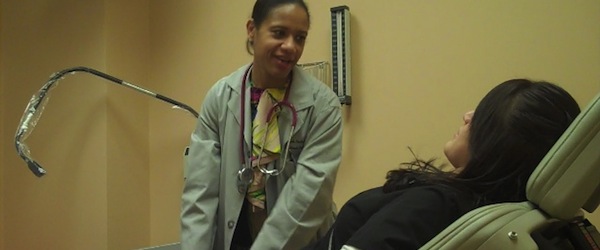
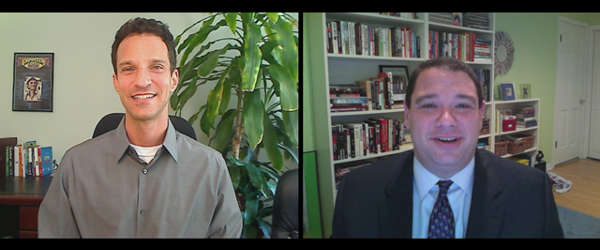
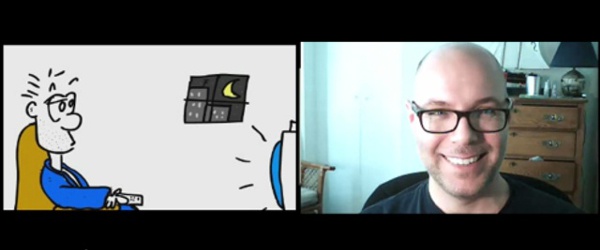
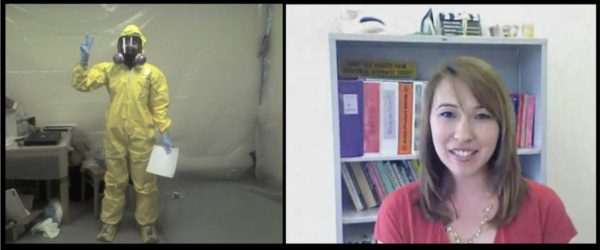
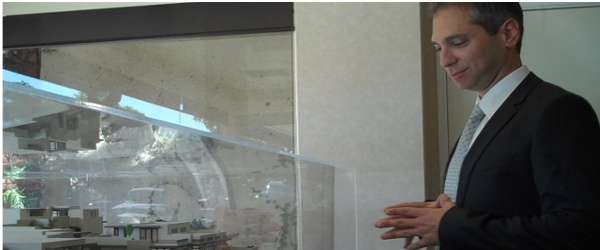
Good stuff…good stuff. Great site idea. Wish I’d thought of it first.
Thanks Leon! Appreciate the feedback.
Great information! Just what I was looking for!
Thanks Cynderella! Appreciate the feedback. Great name, by the way…
WOW! This was amazing! Love the last three tips most because I can use them for my music performance ministry. So cool! THANK YOU for what you do, Marc!
Thanks @92a489e583815b4eedd41c225bafa730:disqus – I’m glad it was helpful! Thanks for taking the time to leave feedback.
Great Interview! Thanks for coming on Michael!! And Marc, KEEP UP THE GOOD WORK!
Thanks for the great feedback @facebook-2711767:disqus! Much appreciated.
Thanks for this video, im doing my first year at college and i am having the hardest time choosing what career to go into. After not liking engineering, and not enjoying my science classes for premed i looked into marketing and this video has opened my eyes to a new career that suits my personality well. Thank you!
That’s great to hear – thanks @disqus_16CnUO0qnd:disqus! Glad we were able to help.
“In 15 years of marketing toys he’s only had 10 days where he didn’t look forward to work.” It is just awesome! Thank you for this interview. My long-term career goal is to be a product marketing manager for a tech company and build new gadgets or software from scratch by digging deep in consumer behavior data. I love marketing and love working in groups, so I hope I am on a right path.
Thanks for the comment @aced7d310b19657995a2a3870b660d71:disqus. Sounds like you’re on a great path. Make sure you get as much product marketing work experience as you can during your summers and if you have time, during the school year. Internships, etc…will be helpful in making that path start out right for you. Glad you enjoyed the interview.
Very helpful. Thank you
Great to hear, @60012304ab90d277c15e860e00c69b54:disqus. Thanks for the feedback. I’m glad we can help.